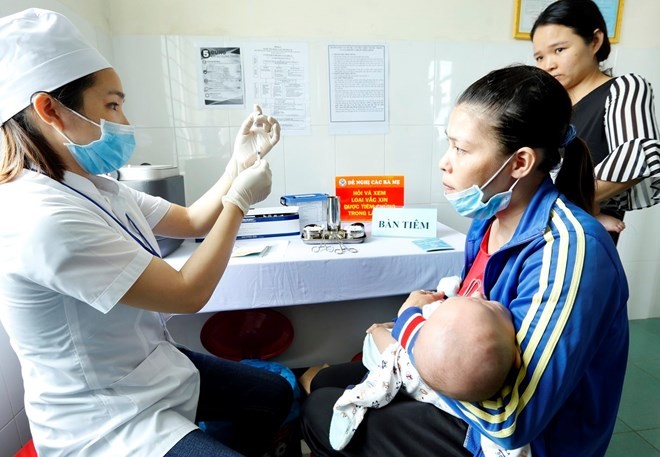
In the first three months of 2018, vaccination coverage was expanded on schedule. The rate of babies getting hepatitis B shots within 24 hours of birth reached 16.9 percent, compared to 16.2 percent in the same period of 2017.
Meanwhile, the immunization rates of tuberculosis vaccine (BCG), polio vaccine (OPV), and combined DPT-VGB-Hib vaccine against diphtheria, whooping cough, tetanus, hepatitis B, and haemophilus influenzae type b (Hib) have also been higher from a year earlier, according to the National Institute of Hygiene and Epidemiology (NIHE) under the Ministry of Health.
NIHE Deputy Director Duong Thi Hong said the vaccination coverage has surpassed 95 percent nationwide. However, how to increase the immunization rate and quality in mountainous and rural areas remains a big challenge to the country. Unfavourable transport conditions, different ethnic languages and the custom of shifting cultivation have hampered ethnics’ access to immunization.
Although the rate of hepatitis B vaccination among babies in their first 24 hours has been improved, it still needs to be boosted in some mountainous and remote provinces where the custom of giving birth at home is popular, she added.
NIHE Director Dang Duc Anh said from now to the end of 2018, the expanded immunization project will continue working with the health ministry’s Department for Medical Examination and Treatment Management and the National Hospital of Obstetrics and Gynecology to step up vaccination against hepatitis B virus at medical facilities with delivery rooms.
With the help of the World Health Organisation (WHO), the project will pilot administering hepatitis B vaccine to newborns at home in the northern mountainous province of Lao Cai in 2018.
He noted that the immunization will also be expanded in rural clinics in northern Yen Bai, Son La, Bac Kan and Bac Giang provinces and central Nghe An, Quang Binh and Khanh Hoa provinces.
























